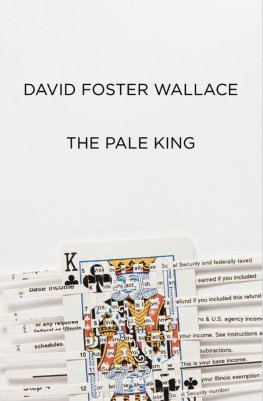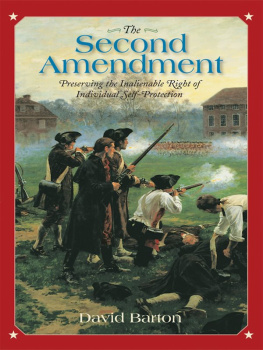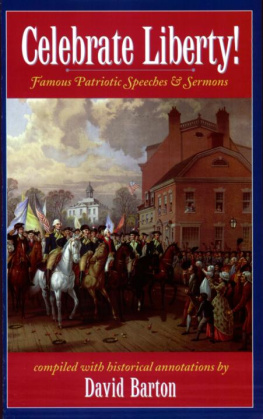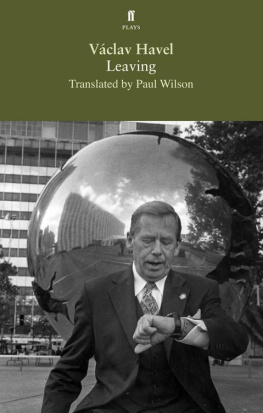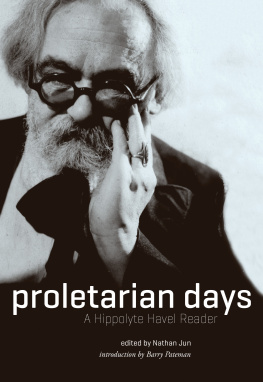David Gilbreath Barton - Havel: Unfinished Revolution
Here you can read online David Gilbreath Barton - Havel: Unfinished Revolution full text of the book (entire story) in english for free. Download pdf and epub, get meaning, cover and reviews about this ebook. year: 2020, publisher: University of Pittsburgh Press, genre: Non-fiction. Description of the work, (preface) as well as reviews are available. Best literature library LitArk.com created for fans of good reading and offers a wide selection of genres:
Romance novel
Science fiction
Adventure
Detective
Science
History
Home and family
Prose
Art
Politics
Computer
Non-fiction
Religion
Business
Children
Humor
Choose a favorite category and find really read worthwhile books. Enjoy immersion in the world of imagination, feel the emotions of the characters or learn something new for yourself, make an fascinating discovery.
- Book:Havel: Unfinished Revolution
- Author:
- Publisher:University of Pittsburgh Press
- Genre:
- Year:2020
- Rating:3 / 5
- Favourites:Add to favourites
- Your mark:
- 60
- 1
- 2
- 3
- 4
- 5
Havel: Unfinished Revolution: summary, description and annotation
We offer to read an annotation, description, summary or preface (depends on what the author of the book "Havel: Unfinished Revolution" wrote himself). If you haven't found the necessary information about the book — write in the comments, we will try to find it.
Havel: Unfinished Revolution — read online for free the complete book (whole text) full work
Below is the text of the book, divided by pages. System saving the place of the last page read, allows you to conveniently read the book "Havel: Unfinished Revolution" online for free, without having to search again every time where you left off. Put a bookmark, and you can go to the page where you finished reading at any time.
Font size:
Interval:
Bookmark:

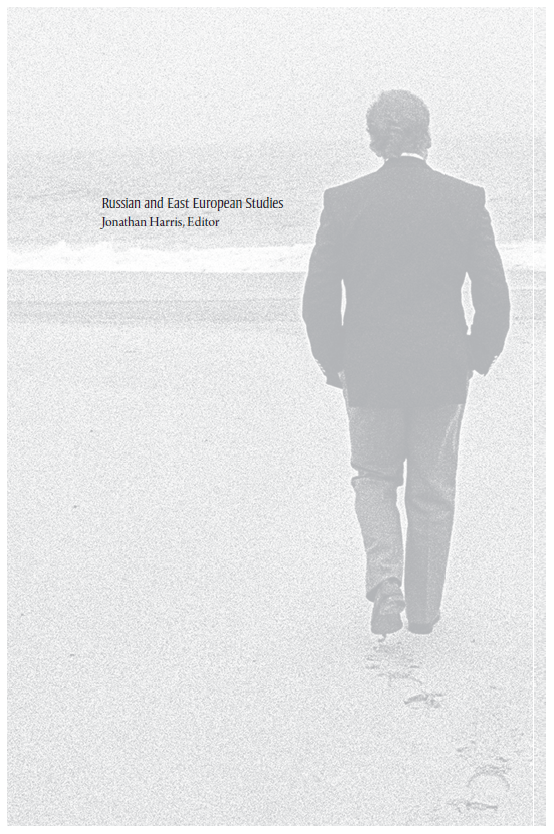
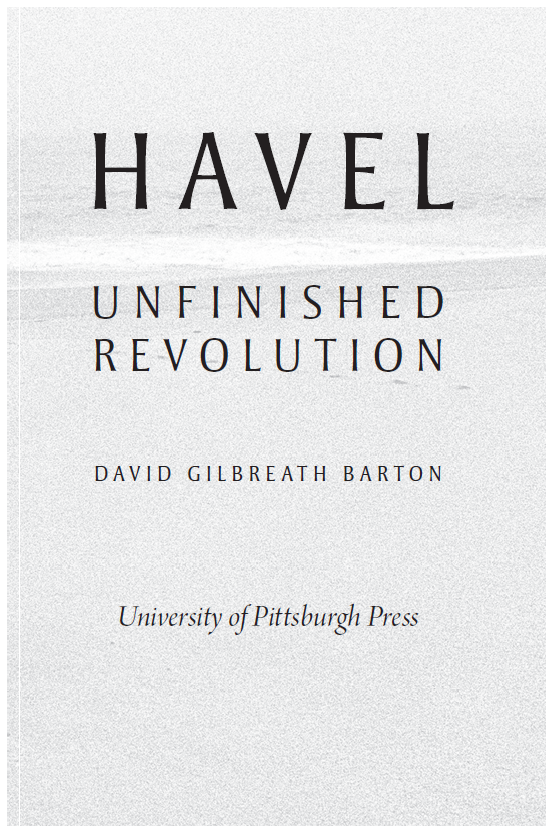
Published by the University of Pittsburgh Press, Pittsburgh, Pa., 15260
Copyright 2020, University of Pittsburgh Press
All rights reserved
Manufactured in the United States of America
Printed on acid-free paper
10 9 8 7 6 5 4 3 2 1
Cataloging-in-Publication data is available from the Library of Congress
ISBN 13: 978-0-8229-4606-9
ISBN 10: 0-8229-4606-8
Cover photograph: Vclav Havel in Cabo de Roca, Portugal, December 14, 1990. Photo Tomki Nmec.
Cover design: Alex Wolfe
ISBN-13: 978-0-8229-8742-0 (electronic)
To Joli
And to the memory of my father,
Robert Clark Barton Jr.
(19302013)
The totalitarian systems warn of something far more serious than Western rationalism is willing to admit. They are, most of all, a convex mirror of the inevitable consequences of rationalism, a grotesquely magnified image of its own deep tendencies, an extreme offshoot of its own development, and an ominous product of its own expansion. They are a deeply informative reflection of its own crisis. Totalitarian regimes are not merely dangerous neighbors and even less some kind of an avant-garde of world progress. Alas, just the opposite: they are the avant-garde of a global crisis of this civilization, first European, then Euro-American, and ultimately global. They are one of the possible futurological studies of the Western world.
VCLAV HAVEL
Politics and Conscience
It would appear that the traditional parliamentary democracies can offer no fundamental opposition to the automatism of technological civilization and the industrial consumer society, for they, too, are being dragged helplessly along by it. People are manipulated in ways that are infinitely more subtle and refined than the brutal methods used in the post-totalitarian societies.
VCLAV HAVEL
The Power of the Powerless
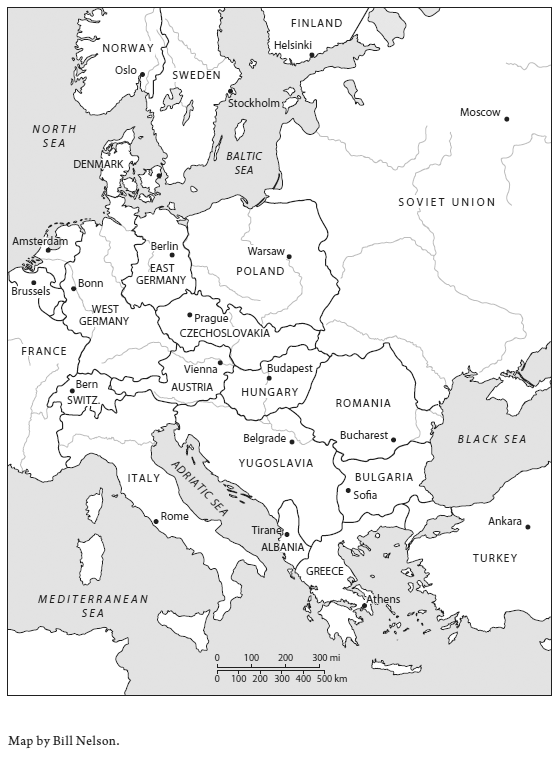
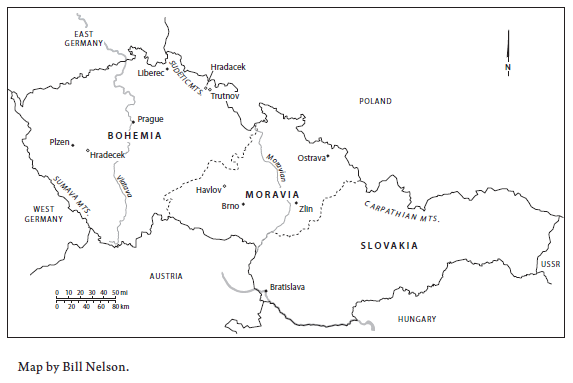
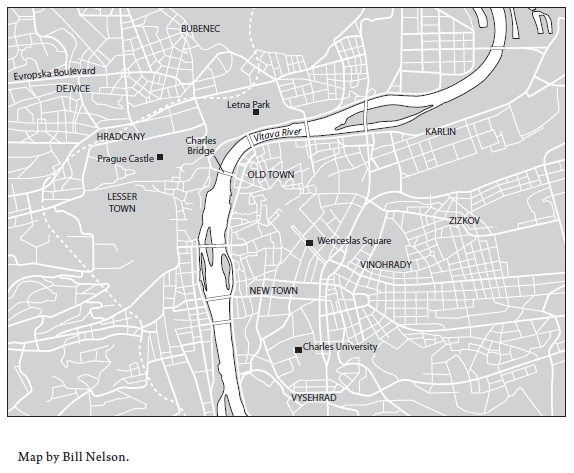
MOST READERS OF THIS BOOK WILL HAVE only a passing knowledge of the Czech or Slovak languages. Although I have made use of Czech language sources, I have also used previous English language translations whenever possible. I have also tried to use English language place names wherever it seemed reasonable to do so. Thus I refer to the city as Prague, not Praha, and I refer to the area just east of the Charles Bridge as Old Town, not Star Msto. Consistency can be a hobgoblin, however, so I have not avoided using Czech place names when it seemed more appropriate.
In matters of translation, I have leaned toward a moderate position, rejecting word-for-word translations that dont capture the spirit or beauty of a phrase in English while also attempting to be somewhat faithful to the syntactical structure of the original Czech.
The name of the country in which Havel lived is a complicated affair, one governed by the fragile and complex relations between the Czech and Slovak peoples. From 1918 to 1938, the country was first called the Republic of Czechoslovakia and then, after 1920, the Czechoslovak Republic. In 1938 the term was hyphenated (Czecho-Slovak Republic), to emphasize the equal status of the two conjoined states. The hyphen was removed after World War II but then briefly returned in 1990, when the state officially became the Czecho-Slovak Federative Republic in Slovakia but the CzechoslovakFederative Republic in Bohemia and Moravia. Finally, the country peacefully dissolved in 1993, becoming two independent countries, the Czech Republic and Slovakia. I have preferred to refer to the government before World War II as the First Republic, which is a term sometimes used by Czechs.
CZECH IS A SLAVIC LANGUAGE. The diacritical marks that make Czech so intimidating to English speakers were originally meant to adapt Czech to the Roman alphabet rather than the Cyrillic alphabet used in the Russian language. The most important of those marks is the hek (), which allows Czech to convey in a single letter what English conveys in two:
English ch, as in charm |
English sh, as in shame |
approximated as zh, as in measure |
the one sound unique to Czech, closely related to the Polish |
Rz or the Russian zh, approximated in English to r-zh |
The hek () can also be applied to the letters d, t, and l to soften the sound, but the effect is slight and hardly discernable for English speakers. In addition, a diacritical mark () or krouek () can be added to lengthen a vowel slightly. Otherwise, the vowels are pronounced like this:
| a | ah, as in saw |
| e | eh, as in mesh |
| i | ih, as in fix |
| o | oh, as in store |
| u | oo, as in fool |
| y | ih, as in flee |
Most of the consonants in Czech are pronounced similarly to English, with the following exceptions:
| c | English ts, as in its |
| ch | considered one letter and pronounced as in the Scottish loch |
| j | English y, as in yes |
The stress in Czech words always lies in the first syllable. Thus Vclav Havel is pronounced VAH-tslav HA-vel. Jan Patoka is pronounced YAN PA-toch-KA.
ONE OF THE RESULTS OF WORLD WAR I, which destroyed so much of Old Europe, was the creation of a small liberal democracy in the northwest corner of what had been the Austro-Hungarian Empire. The new nation, originally known as the Czecho-Slovak State, was headed by an elderly professor of philosophy, Tom G. Masaryk, who had spent the war in Great Britain and the United States, among other places, lobbying for the creation of a new nation that would bring together the Czechs and Slovaks and the different ethnic groups who lived among them.
For a time, the new nation thrived. In the 1920s it boasted one of the most industrialized economies in Europe. During the 1930s, when much of Europe fell into one form of totalitarianism or another, the nation was known as a beacon of tolerance, a refuge for those fleeing the revolution of fascists, Nazis, and communists in nearby countries.
The democracy of the First Republic was deeply bound, along with its first president, to the general ideas known as Masarykian humanism. As a philosophy professor, Masaryk had taught that democracy had a spiritual foundation, one based on the recognition that society existed for the individual. Nevertheless, Masaryk also understood democracy was a challenge, a tall order. It required an educated citizenry capable of participating in free and open discussion, which was only possible with a citizenry savvy enough to see through the language of demagogues.
Font size:
Interval:
Bookmark:
Similar books «Havel: Unfinished Revolution»
Look at similar books to Havel: Unfinished Revolution. We have selected literature similar in name and meaning in the hope of providing readers with more options to find new, interesting, not yet read works.
Discussion, reviews of the book Havel: Unfinished Revolution and just readers' own opinions. Leave your comments, write what you think about the work, its meaning or the main characters. Specify what exactly you liked and what you didn't like, and why you think so.


